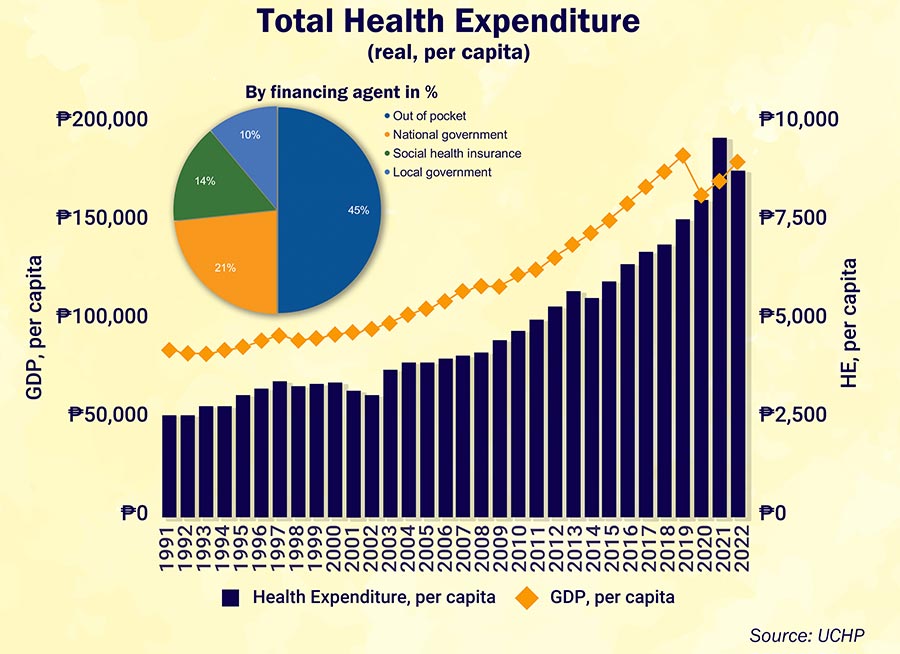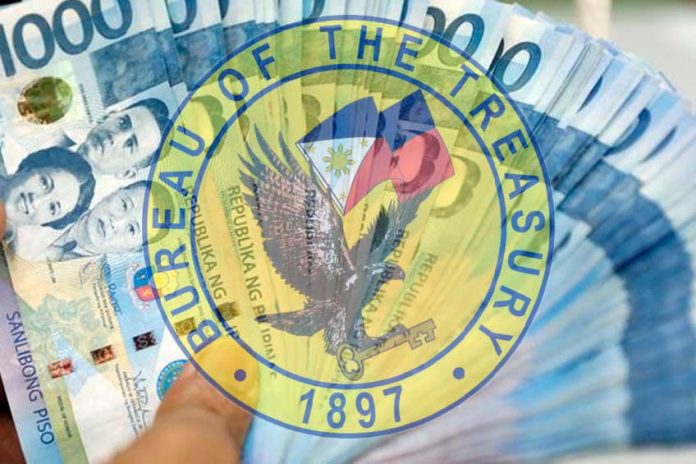By Raymond Africa
SENATE minority leader Aquilino Pimentel III yesterday said President Marcos can order the Department of Finance (DOF) to stop transferring funds of the Philippine Health Insurance Corporation (PhilHealth) to fund unprogrammed appropriations in the 2024 national budget.
He said it will be the fastest way to stop the transfer of the remaining P69.9 billion in PhilHealth funds.
Pimentel and several others on Friday asked the Supreme Court to issue a temporary restraining order against the transfer.
In an interview with radio dzBB, Pimentel said Marcos can order the DOF to stop the transfer of “excess” PhilHealth funds because the chief executive should know that the funds are from members’ contributions, and not actual excess funds of the state insurer.
He said this was the case when lawmakers shot down the idea to transfer funds from the Social Security System and the Government Service Insurance System to bankroll the Maharlika Investment Fund, because money in the SSS and GSIS are from members’ contributions.
Pimentel said the President should heed the call, just like he did when he ordered an immediate ban on Philippine Offshore Gaming Operators (POGOs) as he announced during his third State of the Nation Address.
In jest, he said the President should not wait for the next SONA to announce he is stopping the fund transfer.
Pimentel said the government cannot use a “general law” to amend a “specific law’ to justify the transfer of some P89.9 billion from the PhilHealth to the National Treasury.
He called “illegal” the DOF’s legal basis for transferring the PhilHealth funds to the National Treasury to fund “unprogrammed appropriations” in the 2024 national expenditure.
To begin with, he said, the unprogrammed appropriations in the 2024 national budget is itself illegal because the amount which exceeds the President’s proposed budget.
He said another argument is that the Universal Healthcare Law amended the PhilHealth charter, which provides that “excess” PhilHealth funds can only be used for additional members’ benefits or to lower the monthly contributions of its members.
Pimentel said the special law he was referring to is the UHC Law, while the general law is the General Appropriations Act (GAA) or the budget spending law.
He said what the provision in the GAA was referring to the excess funds of Government Owned and Controlled Corporations (GOCCs), that does not include PhilHealth since the latter’s charter was amended by a “special law” which is the UHC Law.
He also said they asked the Supreme Court to order the DOF to return the P20 billion it has transferred to the National Treasury and stop transferring the remaining amount of P69.9 billion which is scheduled within the next few months.
Pimentel said that provision in the GAA that the national government can get excess funds from government agencies to fund unprogrammed appropriations came as a surprise to him.
He said unprogrammed appropriations can be funded only if there are excess revenue collections and if the government borrows money.
He said that new provision that the government can sweep sleeping funds is a “new invention.”














0 Comments